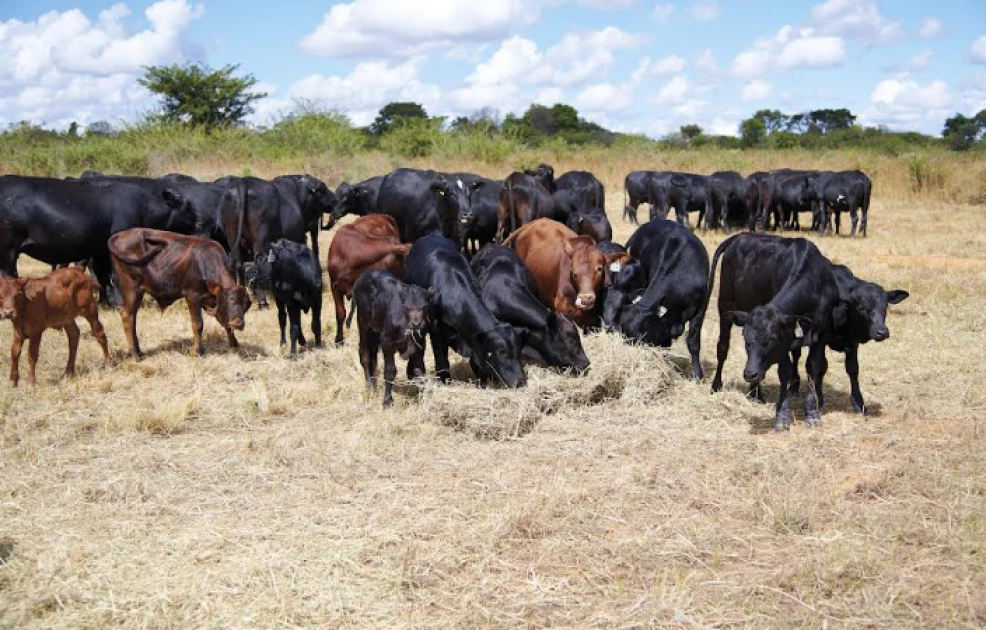African farmers to benefit from global push for low-methane, resilient livestock

Photo credit ILRI

Audio By Vocalize
African smallholder farmers are set to benefit from a new initiative aimed at breeding cattle that produce less methane while boosting productivity and resilience to climate change.
The International Livestock
Research Institute (ILRI), backed by the Bezos Earth Fund and the Global
Methane Hub, has launched a three-year, US$3.35 million (Ksh.433 million) program
under the Global Methane Genetics Initiative. The project will focus on
improving indigenous livestock breeds so they emit less methane, a potent
greenhouse gas, while securing food production for millions across the
continent.
“Reducing methane from cattle
is one of the most elegant solutions we have to slow climate change,” said Andy
Jarvis, Director of the Future of Food at the Bezos Earth Fund. “By supporting
this effort, we are using age-old selection practices, reinforced with science,
to identify and promote naturally low-emitting cattle – locking in climate
benefits for generations.”
Livestock in Africa contribute
about 18% of global livestock methane emissions, with cattle responsible for
70% of those in Sub-Saharan Africa. Without action, emissions from the sector
could triple by 2050. ILRI scientists argue that tapping into the genetic diversity
of African breeds, combined with advanced research tools, can help the
continent meet global climate goals, including the 1.5°C warming target.
Raphael Mrode, Principal
Investigator at ILRI, who is leading the project, described it as “an important
step towards a more sustainable and productive livestock sector in Africa.” He
noted that combining advanced genetics with traditional knowledge offers a
chance to cut methane while improving farmer incomes.
The initiative will measure
methane emissions and productivity traits in cattle across Kenya, Ethiopia,
South Africa, Burkina Faso and Benin. It will also analyze microbial
communities in tropical breeds to better understand how rumen microbes affect
emissions and productivity. These insights will guide breeding programs to
introduce climate-smart cattle that are more heat-tolerant, require fewer
resources, and generate less greenhouse gas.
Alongside scientific work, the
program will build capacity by training technicians, strengthening national
breeding centers, and publishing rankings of bulls and cows that farmers can
access.
ILRI will coordinate the
effort from its bases in Nairobi and Addis Ababa, working with partners such as
the Agricultural Research Council of South Africa, CIRAD (France), CIRDES
(Burkina Faso), and Université d'Abomey-Calavi (Benin). Partnerships with
private-sector actors, including URUS and GENUS, will help bring the improved
cattle into national breeding systems and farmer networks.
“This work brings together the
best of science, industry, and the global breeding community to accelerate
genetic improvement for methane efficiency worldwide,” said Roel Veerkamp of
Wageningen University & Research.
If successful, the initiative
is expected to deliver a 12% cut in livestock methane over 20 years, alongside
a 20–25% reduction in emissions per kilogram of milk within five years. The
program will also make genomic data publicly available to lower breeding costs
and expand access to productive, climate-resilient livestock, particularly for
women and young farmers.
By aligning livestock research
with climate action, the project offers Africa a pathway to permanent and
affordable methane mitigation while strengthening the future of its farming
communities.



Leave a Comment